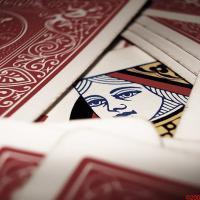
The Queenless Attack
I have always found attacks on the king in which the queen does not take part (usually because she has been traded or sacrificed) to be quite artistic. Why is this? I think it’s because to conduct an attack on the king without the help of the queen, exceptional coordination of various pieces is needed. The queen, on the other hand, works like a sledgehammer and doesn’t require much delicacy to use.
A big question in chess is “where does the endgame begin?” Our topic relates to this. If you start believing that once the queens come off you cannot be checkmated, then you could run into problems, as in this famous game where White (a lower rated master) tried to play drawishly against the great Mikhail Tal. Tal showed that his attacking abilities were not limited to just playing with the queen:
The middlegame and endgame often operate with different principles. For instance, opposite-colored bishops have a completely different effect when it is a middlegame rather than an endgame. In a true endgame certain elements of the pawn structure become more important, and what was a strength becomes a weakness.
In the following game my opponent eagerly traded queens, seeing that – formally at least – my structure was worse. I had more pawn islands, a fixed backward d-pawn, an artificially isolated c-pawn, and an isolated a-pawn. If a few more sets of pieces were traded off, this would be correct. But actually it wasn’t an endgame yet – and in the queenless middlegame the dynamics of my pieces became more important. With some maneuvers I was able to whip up a mating attack, even sacrificing several pawns (and also pieces, in some possible variations) in the process.
I played this game back in 2008. It was a strange kind of tournament – a round robin with only eight players, in Oklahoma. All of my opponents were rated less than I was. Nevertheless, I could be happy with this tournament, in which I scored 6.5/7. I was in extremely good form and played many nice games. This was the start of a period of several months where I had superb results.
Chess is a mystical game in that regardless of the amount of analysis and attempts to find the absolutely correct moves at various stages of the game, it is still just a fight of energy between two people. The actual moves don’t matter as much as you think! Yet, at the same time, it is the moves that decide the result of the game. If two players are in the same class (or, if you compare your own results at various times in your life) the differences are based on psychic energy. This is true at all levels. When you are in sync with Caissa, everything goes right – nothing bothers you. When – on the other hand, you aren’t – problems build up constantly and seem insurmountable.
My opponent in this game was a young player named Conrad Holt. Now he is an IM and one of the top young players in the U.S. – certain to become not just a grandmaster, but a strong one. He has improved a lot since this game, but he was already a dangerous opponent at the time. This was the last round, and I had already clinched clear first place, even in the event of a loss. Thus I decided to offer a draw in the opening, since I had something else I wanted to do! But he showed his character by declining the draw, despite the fact that a draw would guarantee him clear second place. I am glad he did, because it resulted in a nice game.
Upon first entering the endgame I was not immediately sure I did not stand worse. Then I began to see my dynamic chances. The pawn structure, while hampered by White's blockade, had a dynamic strength. In a middlegame the bishop on b7, bearing down through White's king's position, the open f-file, and the entrenched knight on d5 would be worth much more than White's chances to exploit the static weaknesses of Black's pawns. But it was necessary to find the correct plan.
Once I saw the idea to simply throw away the weak c-pawn (in the process opening the a7-b1 diagonal) and maneuver the bishop to b6, then Black's attack played itself. When you are in good form and enjoying playing chess you can find such harmonious ideas; if you are in bad form and low on energy, you don't consider maneuvering the bishop to b6 and instead suffer under White's blockade.






